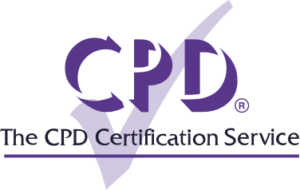In this Nurses CPD Guide
Why do Nurses need CPD?

Nurses must maintain high professional standards to deliver safe and quality care to all of their patients. They must also understand and manage many challenging and emotional situations daily. Therefore, they must keep their knowledge and skills up to date by Continuing Professional Development (CPD) training.
In March 2021, there were 681,527 registered nurses in the UK (NMC registration data report). All nurses have to register with the regulator, the Nursing & Midwifery Council (NMC), to practice nursing in the UK. A compulsory part of joining and maintaining registration (revalidation) is CPD. Failure to comply with the CPD requirement can mean removal from the register, which will prevent an individual from working as a nurse.
In the last NMC’s Leavers Survey, 13.8% left the register due to not meeting the revalidation requirements, and 4.2% did not have a sufficient opportunity to do CPD. This highlights the need for better support for nurses regarding their CPD.
What our customers have to say
Dan King
Mobilisation, Training & Performance Manager

Sophie Aiken
HR Manager

Harriet Lee
Retail Recruitment Manager

What CPD courses do Nurses need?
Not only will nurses require CPD in specific areas of nursing within their chosen field, but they will also require training relevant to patient care. For example, the Care Certificate is recommended for individuals new to health and social care. Other relevant CPD courses that nurses can undertake include safeguarding adults and children, administering medication, the Mental Capacity Act, the Mental Health Act and Deprivation of Liberty Safeguards (DoLS).
Nurses have responsibilities to look after themselves and others when carrying out their duties. Therefore, they should also consider other relevant areas for CPD, e.g. health and safety, needles and sharps, infection control, COSHH awareness, moving and handling and even COVID-19.
Nurses will see many different patients, adults and children, from diverse backgrounds. Therefore, training on topics such as equality and diversity and FGM awareness are also vital.
Download our CPD trackerA guide to CPD for Nurses
Nurses need to keep current on the latest developments, legislation, technologies and techniques, as they are constantly changing. CPD keeps knowledge and skills up to date, so nurses remain fit to practise and provide the best possible patient care.
The Code is the NMC’s professional standards of practice and behaviour for nurses. It requires them to carry out CPD activities to maintain and develop their competence (i.e. a combination of relevant training, knowledge, skills and experience). Regular CPD training can help achieve and maintain competency.
The NMC makes CPD mandatory for all nurses as part of registration and the revalidation process. To comply, nurses must meet the NMC’s requirements, which are on their CPD webpage.
There are numerous professional bodies and associations in healthcare and medical sectors that may require members to undertake some form of CPD. Some may also require members to undertake a certain number of CPD hours annually. Employers may also ask nurses to undertake CPD as part of their role.
If you are not already aware of the CPD training you require, you should ask your employer and check current professional development standards for your field of practice. You can also think about where the gaps are in your knowledge and skills and which areas you could improve.
CPD courses
Many things count towards your CPD, and they should be relevant to you and your goals as a nurse. For example, you can attend seminars/lectures/webinars, read books/journals, start mentoring or observing and undertake work-based learning. You can also complete our e-learning courses, which will count as part of your CPD.
Our e-learning courses are CPD certified and accredited under the CPD Certification Service. When you complete your course, you will gain an accredited qualification and CPD points (hours). The more training courses you undertake, the more knowledge and CPD points you will achieve.
We have different levels of courses for some areas, e.g. safeguarding (children or vulnerable adults) levels 2 and 3. If you are looking for more in-depth knowledge on a topic, then a level 3 course would probably be more suited to your needs.
To make the most out of your learning, you should adopt a structured and consistent approach to your CPD by undertaking training that meets your personal development needs as a nurse in your specialist field.
CPD certificates
Once logged in, you can work through your course in a few hours (depending on the type), and there is no time limit for completion. You can work through it at your own pace at a location of your choice. Very rarely do students need help, but if you do, our staff are here to assist.
After completion of your course, including passing the quiz, you can download your PDF certificate immediately. Our professional-looking certificates are fully CPD regulated. They can provide evidence of training to enforcement authorities, the NMC, professional bodies and prospective employers.
You can log onto your account at any time and download your certificates. You can keep them on file or email them through to others who require evidence. It is also easy to print off a hard copy of your certificate and keep it with your other qualifications and awards in your CPD portfolio. You will also receive a copy of your certificate in the post.
























